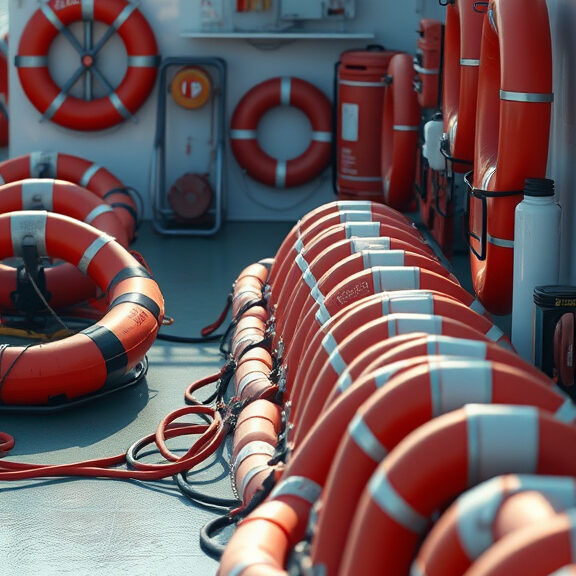Understanding SOLAS: The Importance of the International Convention for the Safety of Life at Sea
The International Convention for the Safety of Life at Sea (SOLAS) is one of the most important maritime treaties in the world. Established to ensure the safety of ships and their crews, SOLAS sets minimum safety standards for the construction, equipment, and operation of vessels. This article explores what SOLAS is, its key provisions, and its significance for maritime safety.

What is SOLAS?
SOLAS, which stands for the International Convention for the Safety of Life at Sea, was first adopted in 1914 in response to the sinking of the RMS Titanic. The convention has undergone several amendments and updates, with the most recent version being adopted in 1974. SOLAS is administered by the International Maritime Organization (IMO), a specialized agency of the United Nations responsible for regulating shipping.
Key Objectives of SOLAS
The primary objectives of SOLAS are to:
- Ensure the Safety of Life at Sea: SOLAS aims to protect the lives of seafarers and passengers by establishing safety standards for ships.
- Prevent Marine Pollution: The convention includes provisions to minimize the environmental impact of shipping activities.
- Promote Safe Navigation: SOLAS encourages the use of safe navigation practices and technologies to enhance maritime safety.
Key Provisions of SOLAS
SOLAS consists of several chapters, each addressing different aspects of maritime safety. Some of the key provisions include:
Construction and Stability
SOLAS sets standards for the construction and stability of ships to ensure they are seaworthy. This includes requirements for hull design, materials, and stability criteria. Ships must be designed to withstand various sea conditions and maintain stability during operations.
Life-Saving Appliances
One of the most critical aspects of SOLAS is its regulations regarding life-saving appliances. This includes requirements for lifeboats, life rafts, life jackets, and other safety equipment. SOLAS mandates that vessels carry sufficient life-saving equipment for all crew members and passengers, ensuring that they can evacuate safely in an emergency.
Fire Safety
SOLAS includes comprehensive fire safety regulations to prevent and control fires on board ships. This includes requirements for fire detection and alarm systems, fire-fighting equipment, and crew training in fire safety procedures. Ships must also have designated fire-fighting teams and conduct regular fire drills.
Safety of Navigation
SOLAS emphasizes the importance of safe navigation practices. It requires ships to be equipped with navigational aids, such as radar, GPS, and electronic chart display systems. Additionally, SOLAS mandates that vessels maintain proper watchkeeping practices and adhere to international maritime traffic regulations.
Communication Systems
Effective communication is vital for maritime safety. SOLAS requires ships to have reliable communication systems, including radio equipment for distress signaling and communication with shore authorities. The Global Maritime Distress and Safety System (GMDSS) is a key component of SOLAS, ensuring that vessels can communicate during emergencies.
Pollution Prevention
SOLAS includes provisions to prevent marine pollution from ships. This includes regulations on the disposal of waste, oil spills, and hazardous materials. Ships must have pollution prevention equipment and follow strict protocols to minimize their environmental impact.
The Importance of SOLAS for Maritime Safety
Protecting Lives at Sea
The primary importance of SOLAS lies in its commitment to protecting lives at sea. By establishing minimum safety standards for ships, SOLAS ensures that vessels are equipped to handle emergencies and that crew members are trained to respond effectively. This has significantly reduced the number of maritime accidents and fatalities over the years.
Enhancing Global Maritime Safety Standards
SOLAS sets a global benchmark for maritime safety. Its regulations are adopted by countries around the world, creating a uniform standard for ship safety. This consistency is crucial for international shipping, as it ensures that vessels from different nations adhere to the same safety protocols.
Promoting Environmental Protection
In addition to protecting lives, SOLAS also addresses environmental concerns. By regulating pollution prevention measures, SOLAS helps safeguard marine ecosystems from the harmful effects of shipping activities. This is increasingly important as the shipping industry faces scrutiny over its environmental impact.
Facilitating International Trade
A safe maritime environment is essential for the smooth operation of international trade. SOLAS contributes to the safety and security of shipping routes, ensuring that goods can be transported efficiently and reliably. This fosters economic growth and stability in global markets.
Encouraging Technological Advancements
SOLAS encourages the adoption of new technologies to enhance maritime safety. As safety standards evolve, shipbuilders and operators are motivated to invest in innovative solutions, such as advanced navigation systems and improved life-saving equipment. This continuous improvement benefits the entire maritime industry.
Supporting Training and Education
SOLAS emphasizes the importance of training and education for seafarers. By requiring crew members to undergo safety training and drills, SOLAS ensures that they are prepared to respond effectively in emergencies. This focus on training enhances overall safety and preparedness in the maritime sector.
Conclusion
The International Convention for the Safety of Life at Sea (SOLAS) is a cornerstone of maritime safety, providing essential regulations and standards to protect lives, prevent pollution, and promote safe navigation. Its comprehensive provisions address various aspects of ship safety, from construction and stability to life-saving appliances and fire safety. By adhering to SOLAS regulations, the maritime industry can ensure a safer environment for seafarers and passengers alike.
As the shipping industry continues to evolve, SOLAS remains a vital framework for enhancing maritime safety and fostering international cooperation. Understanding the importance of SOLAS is crucial for anyone involved in the maritime sector, as it underpins the safety and security of global shipping operations.
